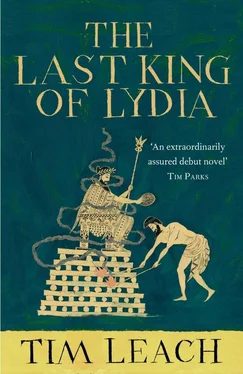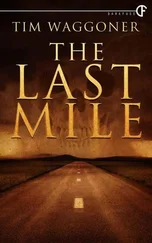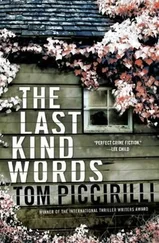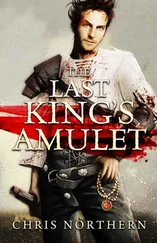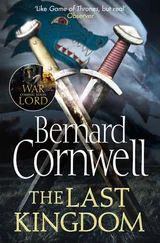Tim Leach - The Last King of Lydia
Здесь есть возможность читать онлайн «Tim Leach - The Last King of Lydia» весь текст электронной книги совершенно бесплатно (целиком полную версию без сокращений). В некоторых случаях можно слушать аудио, скачать через торрент в формате fb2 и присутствует краткое содержание. Год выпуска: 2013, ISBN: 2013, Издательство: Atlantic Books Ltd, Жанр: Исторические приключения, на английском языке. Описание произведения, (предисловие) а так же отзывы посетителей доступны на портале библиотеки ЛибКат.
- Название:The Last King of Lydia
- Автор:
- Издательство:Atlantic Books Ltd
- Жанр:
- Год:2013
- ISBN:9780857899200
- Рейтинг книги:5 / 5. Голосов: 1
-
Избранное:Добавить в избранное
- Отзывы:
-
Ваша оценка:
- 100
- 1
- 2
- 3
- 4
- 5
The Last King of Lydia: краткое содержание, описание и аннотация
Предлагаем к чтению аннотацию, описание, краткое содержание или предисловие (зависит от того, что написал сам автор книги «The Last King of Lydia»). Если вы не нашли необходимую информацию о книге — напишите в комментариях, мы постараемся отыскать её.
The Last King of Lydia — читать онлайн бесплатно полную книгу (весь текст) целиком
Ниже представлен текст книги, разбитый по страницам. Система сохранения места последней прочитанной страницы, позволяет с удобством читать онлайн бесплатно книгу «The Last King of Lydia», без необходимости каждый раз заново искать на чём Вы остановились. Поставьте закладку, и сможете в любой момент перейти на страницу, на которой закончили чтение.
Интервал:
Закладка:
The market was closing down for the day, and at first Croesus thought that he was too late. But then, past the merchants packing their wares into carts, he saw the people he was looking for.
‘They are here, Gyges,’ he said. ‘Will you come with me? Please?’ Gyges, dull eyed and even more exhausted than his father, nodded in defeat. They crossed the square, and came to the stall of the horse-taming Massagetae.
They were a family of six nomads, a man and woman, three sons and a daughter. As Croesus approached the father looked him over with an expert eye and saw that he was a man with no money. The horse trader crossed his arms, preparing to have his time wasted.
Croesus turned to look for a translator to help him, and found a boy of twelve or thirteen already standing at his side. The boy had the dirt-rimed face of a beggar child, but looked up at him with bright, intelligent eyes and stood with a merchant’s confidence. Did he have a family, Croesus wondered? Surely not. He was an orphan who should have starved years before, but had learned to live on words alone.
‘You are here to trade?’ the boy said.
‘Yes. You speak their language?’ Croesus said doubtfully.
‘Of course.’
‘Will you speak for me? I have no money to give you.’
‘I need to practise it anyway,’ the boy said, giving a small shrug. ‘What do you want to say?’
Croesus hesitated. ‘Tell him I want him to take this man with him,’ he said at last. ‘Out of the city.’
As this was translated to him, the horse trader frowned. He spoke a few brief words in response.
‘They have no interest in buying your slave.’
‘He is no slave. He is my son.’
Hearing this, the nomad bristled. He barked out two short sentences.
‘He is insulted that you would sell your son. He asks you to leave.’
‘Tell him again that he is mistaken. I am not here to sell him.’ Croesus paused. ‘I cannot help my son. I want this man to take him in. Take him from the city, and north to the plains.’
The trader threw back his head and laughed. He spoke again.
‘He asks you to tell him why he should take this madman into his family.’
‘Tell him I can give him no good reason. If he takes this man in, he will save his life. He was meant to be free. This city is a prison for him. Please.’
The nomad listened to the translator. He shook his head and raised a finger in admonishment, but paused before he spoke, his eyes focused behind Croesus. Croesus turned to follow the other man’s gaze, and saw his son approaching one of the horses.
It was a white stallion, tall and obviously skittish, but it stood quite still as Gyges approached, then reached out with a shy hand and stroked the horse’s cheek. The animal leaned into his touch, snorting its approval, and Gyges took another step forward, placing his arm flat against its head, his elbow on the horse’s nose as his fingers curled into the top of its mane.
He took a last step forward and let his arm fall back to his side, and rested his head against the stallion’s, like an exhausted traveller placing his head beneath running water, his eyes closed, his breathing slow. The horse whickered in affection, and Gyges gave a small sob in response. Here at last, Croesus thought, in a city of madmen, was something that his son could understand. Something unspoiled by words.
Croesus turned back to the horse trader, ready to argue again, but found him wearing an almost rueful expression, like the face of a man who has made a bad wager. The Massagetae held up a hand to silence Croesus, then called the rest of his family together into a semicircle. They began to debate.
‘What are they saying?’ Croesus asked the boy at his side.
‘They are speaking too fast. I can’t understand them.’
It was true that they spoke rapidly, over and under each other, the argument growing increasingly heated. After a few minutes, the divisions became clear. From what he could tell, two of the sons seemed to be of one mind, the mother, the daughter and the other son of another, with the father still undecided. Which of the sides was for him and which was against, Croesus did not know.
At last, the father held up his hands for silence. He looked at each of his family in turn, and they all said a single word in response. He shook his head in disbelief, then turned back to Croesus and spoke.
‘They will take him,’ the boy said, and Croesus bowed his head and closed his eyes. The world around him seemed to recede, to disappear entirely, as if the entirety of existence, for a single moment, had been reduced to one point of grief. His aching lungs, his weary heart.
When he could speak again, Croesus said, ‘Thank him for me.’
He heard a laugh. ‘He is telling you to get out of here before he changes his mind,’ the boy said.
‘I will. My thanks to you as well.’
The boy gave his small shrug once again. ‘It is as I said. I am grateful for the practice.’
Croesus watched the boy walk off into the crowd, looking for one last commission before the market broke up entirely. He turned back, and found Gyges watching him. Croesus tried to smile.
‘You had better go with them now, Gyges,’ he said. ‘I hope. .’ His voice trailed away.
Gyges opened his mouth, trying to find the words that he knew his father would want to hear. He seemed on the verge of speech when Croesus waved his son into silence. He knew that there was nothing that needed to be said, that they both knew it all already, had always known, perhaps, but had forgotten until the moment of parting. Gyges nodded, to show that he understood.
Then he stepped forward and took his father’s hand in his own. He held it loosely, just for a moment, before he let go and went to join his new family.
The mother threw a sheepskin over his back to keep out the cold and handed him the reins of a horse to lead out of the city, and together, now seven instead of six, they made their way from the market square, to begin their long journey to the steppes and plains of the north, a world of wild herds and wandering rivers, of thousands of people but not a single city.
Croesus stood motionless, and watched them for as long as he could before they were gone from his sight, lost in the crowds of Babylon. He then looked up, back to the royal palace and the balcony at its highest point. If he hurried back, he thought to himself, he might still get back before the sunset. He did not want to die in darkness.
4
Croesus watched the merchant caravans leave the city. He watched the low sun bathe the city in a soft red light. He tried to remember all of the sunsets he had lived to see, to remember how they each compared with this one, whether the last one he saw would be the tenth or the hundredth most beautiful he had ever seen. He stood quite still, and tried to find his strength again. The strength to step up and step forward.
It had been hard enough the first time, and now, even when it felt more right than ever before, it was harder still. His coward’s spirit held him by some intangible, compelling force. Each breath came more ragged and painful than the last, and he began to count them. On the tenth breath, he decided, he would jump.
He thought of Isocrates and Maia, and hoped they would be well. He thought of Harpagus and Cyrus, and was surprised by his sadness that he would not see them again. He thought of Gyges one last time, disappearing north to a new life in the wild lands. This was what Isocrates’s dream had meant, he thought. That at the end of his foolish, selfish life, he would find the way to save his son. Now, at last, he could die happy. He counted the tenth breath.
‘Croesus.’
At first, he did not respond to his name. He wondered if it were some trick of his mind, desperate to save itself, conjuring some aural phantom. But the voice came again, real and insistent.
Читать дальшеИнтервал:
Закладка:
Похожие книги на «The Last King of Lydia»
Представляем Вашему вниманию похожие книги на «The Last King of Lydia» списком для выбора. Мы отобрали схожую по названию и смыслу литературу в надежде предоставить читателям больше вариантов отыскать новые, интересные, ещё непрочитанные произведения.
Обсуждение, отзывы о книге «The Last King of Lydia» и просто собственные мнения читателей. Оставьте ваши комментарии, напишите, что Вы думаете о произведении, его смысле или главных героях. Укажите что конкретно понравилось, а что нет, и почему Вы так считаете.
